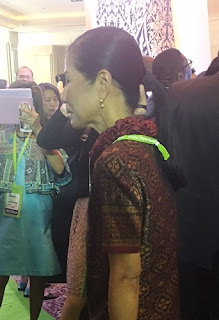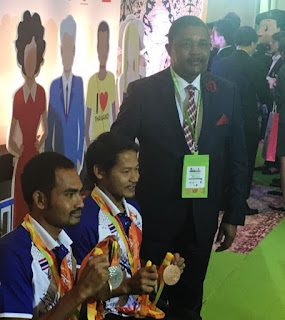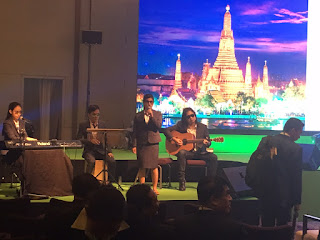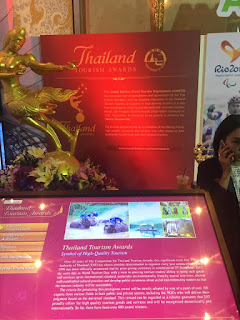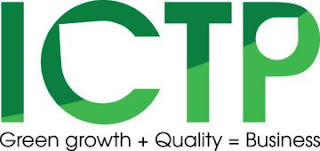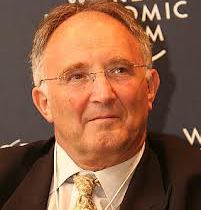
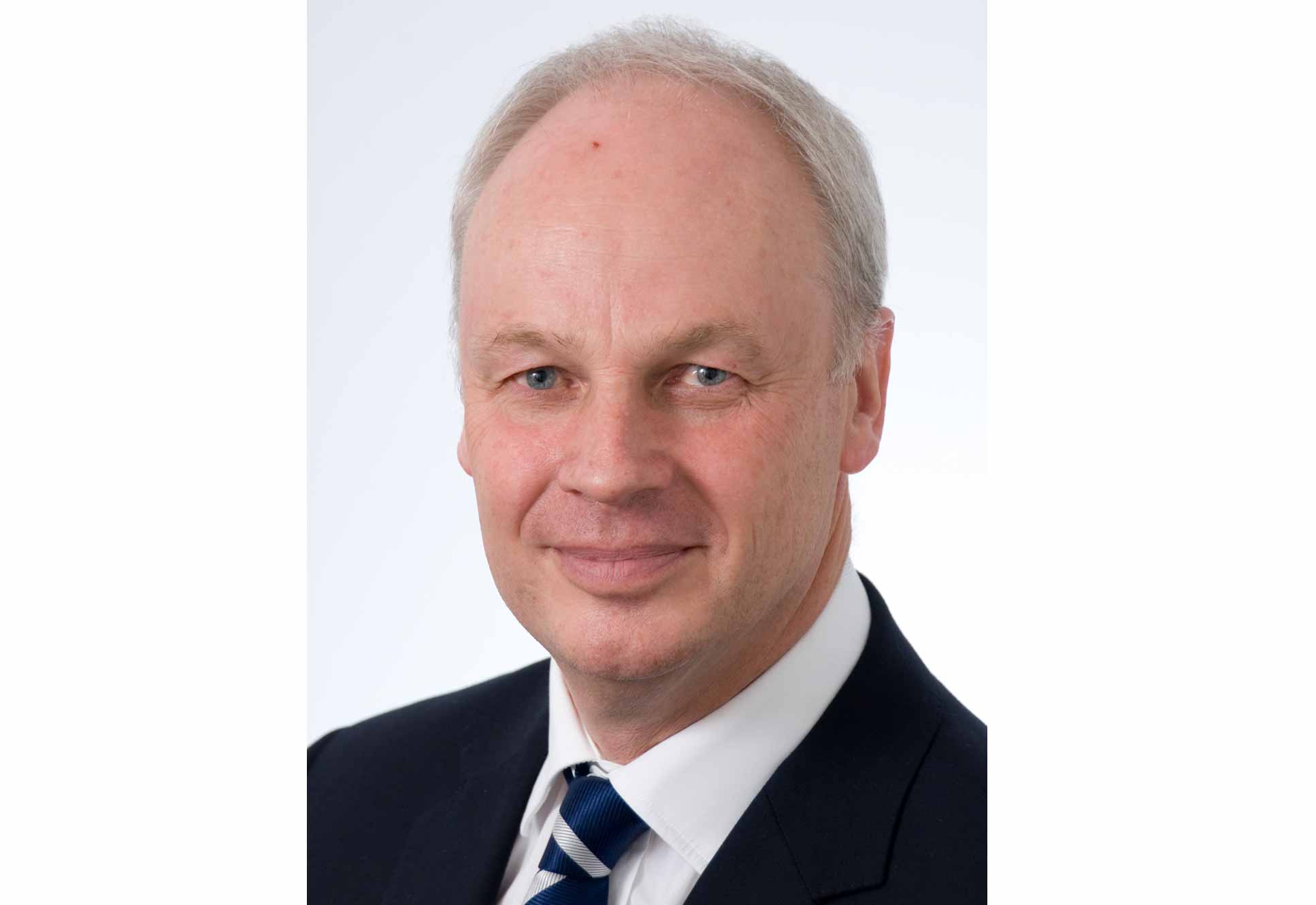
WTTC calls on the Travel & Tourism sector to be more accessible
BANGKOK, Thailand – David Scowsill, President & CEO, World Travel & Tourism Council (WTTC) has called for the Travel & Tourism sector to be more accessible, during a speech at World Tourism Day celebrations in Bangkok, Thailand.
Scowsill said: “Travel & Tourism needs to take accessibility requirements seriously. The imperative is not only moral, but it also makes good business sense.”
The global Sustainable Development Goals provide a roadmap for a more equitable and sustainable future. If Travel & Tourism is going to be truly inclusive in its growth, it must ensure that it is accessible to everyone.
Furthermore, nearly 15% of the world’s population is estimated to live with some form of disability. As populations get older, the number of people with special needs is going to increase.
“Many tourism businesses can be deterred from making themselves more accessible. Sometimes they have financial concerns about the investment necessary to alter or refit their facilities, and at other times they are concerned about offending people. That is why days such as the World Tourism Day are so important. We need to raise awareness of the opportunities of accessibility and the mechanisms by which it can be achieved,” stressed Scowsill.
Scowsill identified three priorities for the Travel & Tourism sector when it comes to accessibility:
1. Understand the market dynamics and opportunities when it comes to accessibility, and how they relate to your business so that you can prioritise actions accordingly.
1. Look at what the leading players are providing and learn from them. Often some simple adaptations or a mere awareness of the needs of people with a disability can make a big difference.
1. Partner with organisations which have experience of working in accessibility, to ensure that what you are providing is appropriate and communicated effectively.
. Scowsill further argued that catering for people with disabilities goes far beyond those travellers restricted to wheelchairs. It includes all forms of mobility restrictions, hearing or visual impairments, learning disabilities or mental health issues. It encompasses the needs of an ageing population around the world.
. WTTC also encourages accessibility in tourism through its Tourism for Tomorrow Awards. In 2015, Ilunion Hoteles won the People Category for its pioneering work in accessible design, and having a work force of people with disabilities in their hotels.
The 2017 Tourism for Tomorrow Awards are now open for entries and WTTC encourages companies that do work in accessibility to apply. Winners will be announced at WTTC Global Summit, which will be held in Bangkok, Thailand, 26 – 27 April 2017.
eTN is a media partner for WTTC.
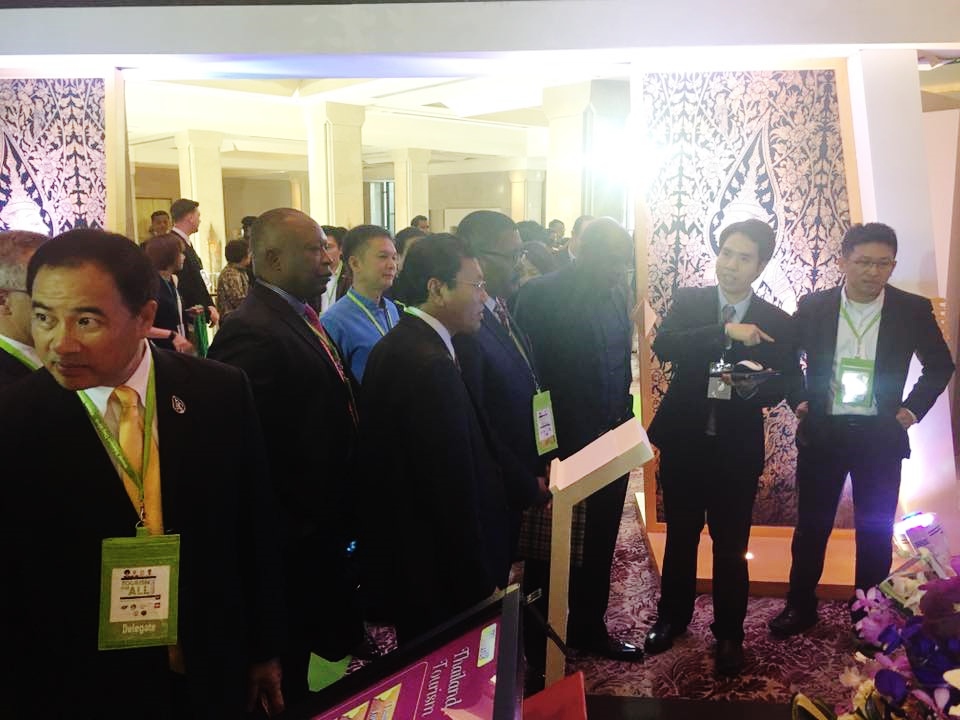
World Tourism Day event launches in Thailand
BANGKOK, Thailand (eTN) – The official celebration of World Tourism Day 2016 (September 27) has just launched in Bangkok, Thailand, under the theme, “Tourism for All,” promoting universal accessibility in the travel and tourism industry.
Thailand’s Minister of Tourism and Sports, Mrs. Konkarn Wattanavrangkulm, was on hand to welcome guests to the one-day event, as was the Hon. Dr. Walter Mzembi, candidate for the UNWTO Secretary-General position.
According to the World Health Organization (WHO), 15% of the world’s population (1 billion people) is estimated to live with some form of disability. UNWTO is convinced that accessibility for all to tourist facilities, products, and services should be a central part of any responsible and sustainable tourist policy.
World Tourism Day addresses the importance of good practices in the accessible tourism supply chain.
The opening included a touching rendition of blind people performing and singing “Somewhere Over the Rainbow.” Enjoy the images gathered by eTurboNews.
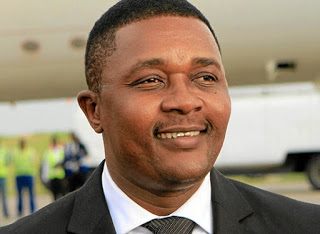
UNWTO candidate Dr. Mzembi issues statement for World Tourism Day
The outspoken candidate for the next UN World Tourism Organization (UNWTO) Secretary General, Doctor Walter Mzembi, the Minister of Tourism and Hospitality for Zimbabwe, today issued a statement for World Tourism Day.
Celebrations for World Tourism Day are held around the world, with Bangkok as this year’s official location.
Dr. Walter Mzembi said from Bangkok:
I issue this solidarity statement from Bangkok, Thailand, where we are gathered to celebrate World Tourism Day, 2016, under the theme: “Tourism for All – Promoting Universal Accessibility.” The entire government of Thailand has been mobilized around this event led by the Prime Minister, HE General Prayut Chan-o-cha, who shall deliver the keynote address.
The program also captures the involvement and various acts by the Deputy Prime Minister, our host Minister of Tourism herself, HE Mrs. Kobkarn Wattanavrangkul, and a technical visit to Khon Kaen Province, where we shall be treated to a very rich itinerary including the “performance of wheelchair men,” in line with the global theme.
What is very clear, as was the case with our hosting of the 20th session UNWTO General Assembly in August 2013, is that this is a national event taken very seriously by the entire nation and an absolute opportunity to leverage this global endorsement to bring to the fore, the country’s best foot, and its brand pay off line, “The Land of Smiles.” Hopefully, while not forgotten, this should put behind them the horrid memories of multiple assaults on the sector ‘s tourist hotspots of Hua Hin, Surat Thani, and Patong on August 12 of this year. In my condolences to the Tourism Minister, I did promise that in solidarity with the people of Thailand and the incessant attack on the sector, I was going to join the Secretary General, Dr. Taleb Rifai, and other dignitaries who include the World Travel and Tourism Council President and CEO, David Scowsill; Mario Hardy, PATA CEO, and other colleagues and ministers invited to the celebrations.
Notwithstanding the clear intentions to scare us away from this beautiful country, we are out here to reinforce the message that no amount of terror will halt the sheer force and energy of human civilization unleashed by this great revolution of our contemporary times – travel. We are here to consolidate the gains of travel, which only 65 years ago had 25 million travelers, and has since closed 2015 with 1.2 billion tourists! Today, the sector employs 288 million people, and accounts for 6% of the world’s exports at $1.5 trillion, translating to a cumulative impact of earnings of $8 trillion – 10% of the Global GDP. The sector, in line with SDGs 8, 12, and 14, shall record a minimum of 1.8 billion by 2030, which projections are now being tested and certainly need to be revised if one takes into consideration news from China that it will authorize an unbelievable 600 million outbound Chinese tourists by year 2020, from the current 128 million!
So, the best way to help conflict stricken destinations, terror targets, and now as we redefine insecurity to include natural disasters, is to visit and continue visiting those destinations. Suspend all protocols, and disregard inordinate travel advisories that seek to multiply misfortune and suffering on unfortunate destinations by endorsing them through sustained visits. The 1.2 billion tourists are potential peace ambassadors and opportunities for the world’s terror-stricken targets and the poor.
Typically, the subject of accessible tourism is key in our contemporary times. It is not only about providing tourism services to people with disabilities, but innovatively creating universally-designed, barrier-free environments that support people who may have temporary and permanent physical challenges, young children, the ever increasing elderly population, as well as creating safer environments for employees who work in the sector.
Applying inclusion principles, in my view, demands that the facilities and products which we have established or are currently under establishment, become accessible by all. This way, it helps destinations to expand their horizons in terms of inclusivity, competitiveness, and ideally lead to greater customer satisfaction, loyalty, and expansion of the business.
At the strategic and operational level, accessible tourism implies that the tourism industry needs to redesign itself to develop flexible, multi-use accessible spaces and enhance its productivity and operational management, all of which should directly assist humanity to enjoy tourism products with no hindrance, exclusion, or impediment to access.
Our varied geographical, cultural, and social disparities should not be excuses to perpetuate exclusion of others. It is imperative as we celebrate the international World Tourism Day today, to once again renew our covenant, in which with one accord we proclaim tourism as a product for all. This cannot happen without support from all of us and indeed, stakeholder collaboration to provide easily-accessible tourism products becomes a game changer.
I call upon designing and re-designing of both new and old infrastructures to enable people with unique access requirements, including mobility, vision, hearing, and cognitive dimensions dignified equity, sharing, and access.
My clarion call is that accessible tourism is everyone’s responsibility. It is indeed a collaborative process that requires full understanding of heterogeneity of access requirements informed by different types of embodiments, where the creation of an enabling environment is understood through universal design that answers to the physical and intuitive needs of different people.
Therefore, it is super critical that tourism operators in Zimbabwe, Africa, and globally, understand the visitors’ experiences on enabling or disenabling tourism environments so that those experiences help all of us to put in place needs-based infrastructure and super structures.
I mention this on the back of the ever-growing need to adapt tourism products to be more user-friendly to our traveling publics, who in some cases encounter accessibility difficulties in the travel process resulting in dissatisfaction.
Yet, when there is an enabling tourism environment, visitors’ experiences become memorable, joyous, dignified, and equitable. It is this missing link that we should look at and address as a new growth opportunity in our destinations. Clearly, simple design solutions can make a huge difference and open our destinations to accessibility required by markets as well as improving operational efficiency of the tourism business.
There is a realization that building of hotels, restaurants, theatres, public spaces, public transport, streets, and squares often are insufficiently inaccessible to people enabled differently. Many inconveniences occur when some of our people want to use facilities. Thus, this calls for the application of minimum standards to cater for the physically challenged so that tourism value chains are not seen as discriminatory.
“Tourism for all – Promoting universal accessibility” is a call for global commitment to reposition the tourism industry less through talk shows, but more through instituting practical solutions to “quick-fix” action to close the gaps which make tourism products inaccessible. It is refreshing that the UNWTO is celebrating this day in 2016 on the back of 2017, the “International Year of Sustainable Tourism for Development.” This is a befitting theme, and part of our discussions and outcomes will significantly shape the destiny of delivering sustainable and inclusive tourism product value chains, and repositioning of global tourism for all.
As usual, because of our unique economic circumstances, there is always an attempt to domesticate international themes to answer our own challenges, and one such debate has been how pricing of tourism and hospitality services, especially in the wake of a bullish United States dollar, our anchor currency has denied the majority of our people access to these assets. It is a very valid argument for another day, and aligns itself to an international argument on the behavior of currencies actually now impacting the performance of the sector globally.
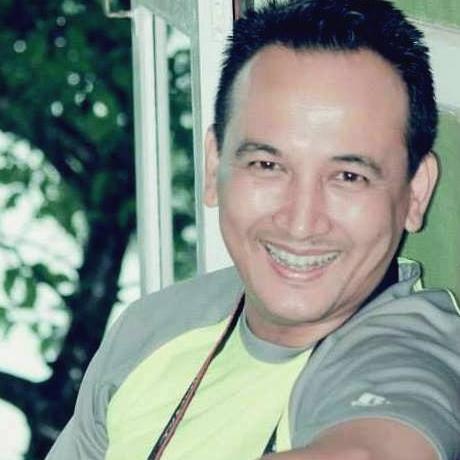
ICTP and Inclusive Tourism: World Tourism Day Initiative from Nepal
Tomorrow is World Tourism Day. This year the UNWTO event is hosted by Thailand in Bangkok. However the day is celebrate anywhere in the world.
Every year World Tourism Day has a special focus.
This year World Tourism Day is about accessible and inclusive tourism.
The chapter in Nepal for the International Coalition of Tourism Partners (ICTP) initiated by its chapter president Pankaj Pradhananga of Four Seasons Travel & Tours in Kathmandu has been working on this challenge in Nepal tirelessly.
Mr. Pradhananga told eTurboNews:
“Inclusive Tourism is a relatively new term in Nepal. Though the effort of opening up for accessible and inclusive Tourism has already begun, it is still in its infancy. A major concern for Destination Nepal is the lack of awareness and absence of mandatory law in place to encourage Tourism operating sectors for coming up with accessible Tourism products.
Given the enormous economic and social benefits to be derived from Inclusive Tourism, it is the high time for the industry to understand and develop Inclusive tourism in the gateway to Himalaya.
Nepal was struck with devastating earthquake on the 25th April 2015 which also left more than 4,000 Nepalese with physical disabilities. It is rather more important to build accessible infrastructure for the benefit of the locals as well the foreign tourists who want to enjoy Natural and cultural beauty of Nepal.
Focusing on making the state and Tourism entrepreneurs understand the importance of inclusive tourism will not only benefit the tourism industry, it will also connect the vibrant DPOs ( Disabled People Organizations) and Tourism operating sectors.
Tour operations in Social Entrepreneurship models can also empower the PWDs and also create jobs for the Assistants who also provide services to the local PWDs.
Aftermath April Earthquake, Nepal is in the process of rebuilding the nation along with its historic monuments in Kathmandu valley. A focus on Inclusive Tourism will also ensure such moments are rebuilt keeping in mind the accessibility needs of local PWDs and Elderly travelers.
ICTP and Its Himalayan chapter president, Pankaj Pradhananga is leading the initiative of Inclusive Tourism in order to help Destination Nepal to bounce back. ICTP also believes it will not only ensure responsible practices in Tourism, it will also prove to be a sustainable model of Tourism development in the long run.
The International Coalition of Tourism Partners in Nepal is extending its best wishes on the occasion of World Tourism Day with the theme Tourism for all – Universal accessibility.
More information on ICTP : http://www.ictp.travel

ICTP President: Climate Change is Existential – Act Now
Just in time for Tuesday’s World Tourism Day, Professor Geoffrey Lipman, the President of the International Coalition of Tourism Partners (ICTP) is revealing his thoughts on Green Growth, in an age of increasing Climate Realities.
He writes:
I decided to start a blog despite knowing it’s a discipline I hate. So let me say from the outset it will be spasmodic and only when there’s something important to say. And today there is.
Today, when we rightly focus on all the positive potential of Tourism for our future there is something of underlying importance to also consider . It’s about existential climate change: repeat existential. Which means if we don’t start the fix for global warming now our grandkids will freeze or fry.
I have decided to spend the rest of my working days trying to focus on that fix – and specifically how the Travel & Tourism sector can fully play its part. I am hopeful that ICTP and its Members will be leading the charge.
Fortunately, there is a chance the battle can be won. We are on the verge of a historic ratification of the Paris Climate Accord in no small measure due to the extraordinary leadership of Presidents’ Xi and Obama, both of whom understand the incredibly short time we really have, to shift away from our global carbon addiction. It is increasingly likely that ratification levels will be reached this year and that ICAO will slowly begin to manage aviation emissions next month.
This is just the start of a 3-decade carbon detox that will require a new dedication from every stakeholder, a new ability to think outside the box and new ways of doing business – investing in technology innovation and fiscal measures to spur the change.
Most importantly there is a delivery challenge – while the Global Accords and carbon reduction targets are established by sovereign states, the real action will have to be at the local community level – urban and rural – and the masses of sme’s that dominate the value chain.
The pace of change will be far greater than we can imagine now – trillions of changes in millions of places. And the stakes will be high – 12 trillion dollars of opportunity according to Bloomberg, to hit the 2-degree C stabilization mark. Much more for the 1.5 degrees C that most experts say is the real target.
When I discussed this with Maurice Strong, one of the founding fathers of modern day sustainability thinking and a friend and mentor for 20 years, shortly before he passed away last year, we talked about finding ways to take the best of climate response thinking to the grass roots of the Travel and Tourism sector. And to do so in a way that could be low cost, high impact and scalable in line with the Paris Accord. He urged me to keep up the good fight on climate change as the existential challenge of sustainable development.
SUN is the result – the Strong Universal Network – a growing community of communities, who recognize the existential nature of Climate Change and act glocally to deal with it. SUN is built on a vision of Impact-Travel – where the positive and negative elements of tourism are recognized, managed and measured coherently. It is based on Green Growth for low carbon, resource efficiency and biodiversity conservation, while strengthening jobs, inclusion and trade and “reconnecting” nature, urbanization and people. Impact-Travel embraces hyper-connectivity, technology acceleration, the internet of things and web/human interface – what the World Economic Forum calls a 4th Industrial Revolution (4IR).
With committed colleagues from around the world, we’ve begun to work on this kind of existential climate change focused, transformation system. A cloud connected network of solar powered hubs, with a smart technology platform to identify best of breed innovation, learning systems, performance enhancing tools/services, for measured and managed Impact Travel. Most importantly targeting the base of the pyramid – the community – to make sure that the change respects local culture and is inclusionary from the outset.
In future articles I’ll try to lay out how we plan to advance this during the 2017 International Year of Tourism, how we want to engage within and outside the sector and how we will outreach first to UN regions in 2018 and then globally by 2020, with Expo Dubai as a grand visible booster, to link deeply into the Paris Accord response system.
This is a start – up activity, funded to date by a small number of committed partners. Our next step is to secure impact investment to take it to breakeven level. If you are interested to be a part of this existential climate focused SUN movement, please contact Geoffrey Lipman:
[email protected]
www.thesunprogram.com
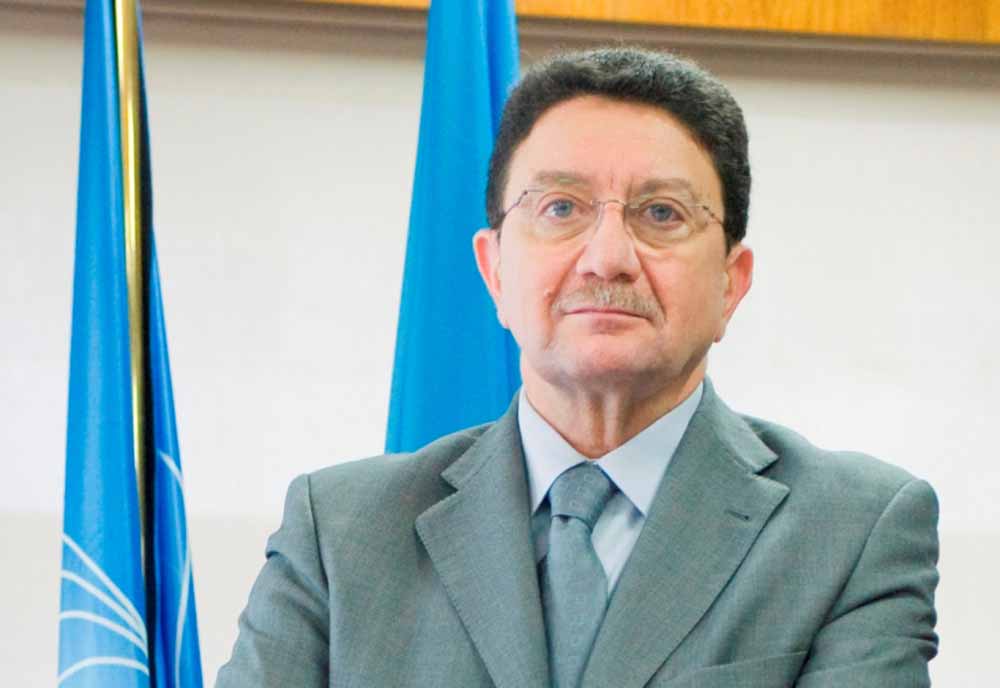
UNWTO Secretary-General Taleb Rifai: “Tourism for all!”
MADRID, Spain – Tourism has experienced a revolution in the past 50 years. In 1950 there were 25 million international tourists; today there are around 1.2 billion people travelling the world. Travelling has become a huge part of many lives.
When travelling, we come across new people, new sights, and new ideas. Often our perception of the world changes as we see more of it. However, we must not forget that for many, travelling can be quite a difficult process.
15% of the world’s population is estimated to live with some form of disability. That is 1 billion people around the world who may be unable to enjoy the privilege of knowing other cultures, experience nature at its fullest and experience the thrill of embarking on a journey to explore new sights.
Accessibility for all should be at the center of tourism policies and business strategies not only as a human right, but also as a great market opportunity.
With the world’s population ageing, all of us will benefit sooner or later from universal accessibility in tourism.
As we celebrate World Tourism Day, let us recall that all of the world’s citizens have the right to experience the incredible diversity this planet has to offer.
We thus urge all countries and destinations, as well as the industry, to promote accessibility for all in the physical environment, in transport systems, in public facilities and services and in information and communications channels.
I wish you a very happy World Tourism Day and a future full of enriching and compelling travel experiences to be enjoyed by all.
Thank you very much!

Massive endorsements for Mzembi for UNWTO Secretary General post
Zimbabwe’s Tourism and Hospitality Industry Minister, Dr Walter Mzembi is in New York for bilateral meetings with various government delegations at the United Nations General Assembly. As part of his engagements, the mercurial Minister and African Union endorsed candidate for the UNWTO Secretary General Post that falls vacant in 2017, received further endorsements at an African Travel Association Conference at New York University yesterday.
Hon Dr Walter Mzembi (MP), African Union candidate for the post of UNWTO Secretary General post
The Corporate Council for Africa (CCA) which has since acquired the Africa Travel Association (ATA), New York University academia and the African Union Deputy Commission Chairperson added their weight behind Dr Walter Mzembi’s bid to land the coveted post.
Speaking at the11th Annual Presidential Forum held annually on the sidelines of the United Nation General Assembly in New York, the President and Chief Executive Officer of CCA, Mr Stephen Hayes said “Dr Mzembi has been twice President of Africa Travel Association and he is the current Chair of the UNWTO Regional Commission for Africa with the requisite leadership competences to lead the world tourism body. He is highly qualified and has demonstrated clear policy direction for global tourism. We are proud of him as a dynamic leader with a transformative agenda that will drive sustainable tourism development. Africa, as a collective is contesting this post for the first time, and it is important that we give this Minister our full support. As CCA, we are very much behind you Walter”, Hayes said.
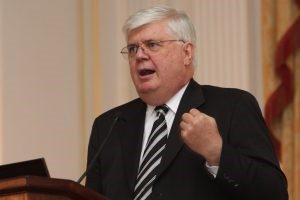
Corporate Council President and CEO, Stephen Hayes endorses Dr Mzembi
African Union Commission Vice Chairperson, Dr Erasmus Mwencha also added his voice by calling on the global tourism players and Members States to render their full support to Dr Mzembi. “I am here to talk briefly about tourism but not better qualified to do so than our Minister, my brother here Walter Mzembi whom you all heard is our African Union candidate. He is able to do it. I take him as the real deal broker we should deploy at the UNWTO. Our dynamic candidate can connect the world to Africa’s immense tourism and investment opportunities in line with our Agenda 2063 and the Africa We Want”.
During the same event, the Director of Africa House at New York University and Professor of Economics Yaw Nyarko underscored that “we are fully behind you, and if I had a vote, it is yours. You are the best and right person for the job to carry forward the legacy of the incumbent”.
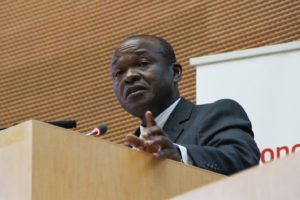
“We are joining the UNWTO as an Affiliate Organization and we will support you Dr Walter Mzembi”, said Dr Kristin M. Lamoureux who is an Assistant Dean of Tisch Centre for Hospitality and Tourism at the same University. The same sentiments were also echoed by the academia and student body at the University during an interactive session.
Notable amongst the audience were Ministers of Tourism and Environment from Namibia, Sierra Leone, Mali and Rwanda who participated later on in a Ministerial Roundtable. Also in attendance were members of the diplomatic corps, tour operators, Think Tanks and travel writers.
On his website, Dr Mzembi points says “My Vision is for a UNWTO which is responsive to Member States aspirations for a global tourism that is inclusive, integrative, tolerant, responsible, empowering, equitable, sustainable, and an effective tool for public diplomacy.”
The post falls vacant in May 2017 when incumbent Dr. Taleb Rifai’s term expires. Mzembi was appointed Zimbabwe’s tourism minister in 2009 and found his way into the UNWTO Executive Council, which plays a critical role in developing tourism worldwide. Currently he serves the organization as the UNWTO Regional Commission for Africa Chairperson, where he has acquitted himself very well. Since its inception in 1975, no African has contested the position of Secretary General of the UNWTO. It is the first time the African bloc is fielding a candidate with unprecedented unanimity. The unanimity obviously is a function of this unavoidable superiority of policy direction and his clarion call to work to improve global performance of tourism and increase its market share across all the six regions. The Secretary General is the Chief Executive of the organization, and drives the agenda of global tourism.
The UNWTO is the United Nations’ agency responsible for the promotion of responsible, sustainable and universally accessible tourism. It promotes tourism as a driver of economic growth, inclusive development and environmental sustainability and offers leadership and support to the sector in advancing knowledge and tourism policies worldwide.
Meanwhile, Bloomberg.org reports that Bloomberg Philanthropies and the U.S. Department of Commerce under President Obama’s Bloomberg Foundation/U.S. Department of Commerce’s CEO Forum, will this week also co-host the second U.S.-Africa Business Forum, a day focused on increased trade and investment between the U.S. and African nations. The other purpose of the forum is to promote Africa’s social, economic and political progresses, as well as to attract greater foreign direct investments. It is organized by the Africa Business Roundtable, in conjunction with Washington Media Group, Africa 24 TV, Eyes On Africa and Invest Africa. The forum will be attended by African Leaders and Dr. Mzembi is one of the keynote speakers during the same event. The U.S.-Africa Business Forum will build on the progress of the inaugural Forum, held during the 2014 U.S.-Africa Leaders’ Summit with the participation of nearly 50 heads of state or government and more than 150 global CEOs – to further develop trade and business opportunities between the United States and Africa. Dr Mzembi whose endorsement is gaining currency each passing day from various quotas of global tourism players will speak at the event.
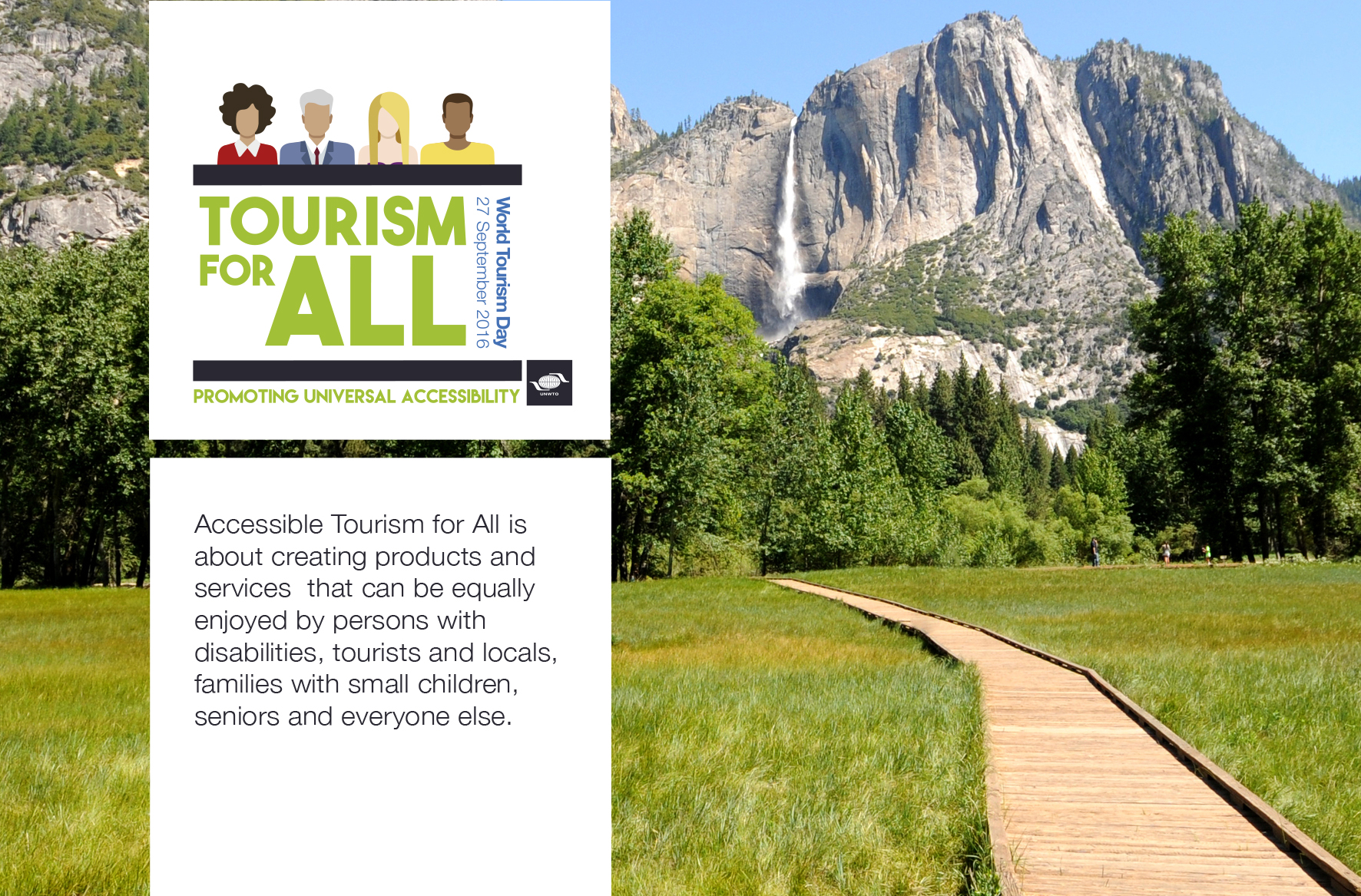
Accessible Tourism, theme of World Tourism Day 2016
Tourism for all: people with disabilities, senior citizens and families travelling with small children, and sooner or later all citizens will appreciate the advantages of universal accessibility. This is why UNWTO has chosen to celebrate World Tourism Day 2016 on the theme of accessible tourism. Official celebrations will take place on 27 September in Bangkok, Thailand.
For the last quarter–century World Tourism Day, held annually on 27 September, has aimed to foster awareness of the importance of tourism and its social, cultural, political and economic impact. This year’s official celebrations will be held in Bangkok, Thailand on the theme of ‘Tourism for All – Promoting Universal Accessibility’.
Reaching universal accessibility in tourism is a shared responsibility of all parties involved in the tourism value chain, as well as a business opportunity for companies and destinations.
“Everyone has the right to access leisure and tourism services on an equal basis. Yet 1 billion people around the world living with disability, along with young children, seniors and persons with other access requirements, still face obstacles in accessing fundamentals of travel such as clear and reliable information, efficient transportation and public services, and a physical environment that is easy to navigate. Even with modern technologies, those with visual, hearing, mobility or cognitive impairments are being left behind in many tourism destinations.” said United Nations Secretary-General Ban Ki-Moon in his official message.
“All of the world’s citizens have the right to experience the incredible diversity this planet has to offer. Therefore, it is highly important that all countries and destinations, as well as the industry, promote accessibility for all in the physical environment, in transport systems, in public facilities and services and in information and communications channels”, said UNWTO Secretary-General, Taleb Rifai.
“This year’s theme, ‘Tourism for All – Promoting Universal Accessibility’, is a challenge for Thailand and the world to recognize the necessity of accessibility in tourism and to accommodate everyone anywhere they may travel to (…) We have to understand the theory of Universal Design (…) As the world of travel and tourism is an expanding industry and the number of travelers increases every year, we have to ensure that travelling the world has to is as safe and seamless as possible,” explained Kobkarn Wattanavrangkul, Minister of Tourism and Sports of Thailand.
The official celebrations include a ‘Tourism and the Media’ session held on 26th September at Chulalongkorn University in Bangkok, and a full-day conference the following day. During the event, experts on accessibility and tourism will exchange views and best practices, addressing the need to work in cooperation to advance in the ‘Tourism for All’ agenda.
Creating an adequate policy framework for specific business development strategies, the need to increase awareness and capacity building targeting both decision makers and tourism professionals are some of the topics to be addressed during the conference. Andrew Stevens, Asia Pacific Editor of CNNMoney, will moderate this discussion.
The conference will also address innovative strategies in the development of accessible tourism infrastructure, products and services which add value to destinations and enhance their competitiveness on the global tourism market. A number of best practices will be featured with the aim of emphasizing the value of investing in accessibility.
The celebrations of World Tourism Day 2016 are being held in collaboration with CNN, UNWTO media partner.

ETOA – European tourism association welcomes the designation of 2018 as EU-China Year for Tourism
ETOA – the European tourism association welcomes the designation of 2018 as the EU-China Year for Tourism, as announced by Mr Jean-Claude Juncker, President of the European Commission and Mr Li Keqiang, Premier of the State Council of the People’s Republic of China, at the opening of the EU-China summit on 12 July 2016.
Tom Jenkins, ETOA CEO said: “China remains one of the most important future markets for European Tourism, and that there is a designated year for tourism co-operation is of course to be welcomed. How Chinese visitors are welcomed and accommodated, how their expectations can be met is one of the central topics that the industry has to address: this initiative will help them do so.”
“The EU-China Tourism Year is a great opportunity for the European tourism industry to explore the Chinese market, but also learn how to attract Chinese visitors and offer them the best experience”, said Eduardo Santander, ETC Executive Director. “ETC is looking forward to cooperating with the European Commission and the other EU tourism stakeholders, making sure that we turn this possibility into a great success.”
China is the world’s largest travel market in terms of both outbound travel and expenditure. Lately, European destinations have strengthened their position in this market, attaining 10,1 million Chinese visitors in 2015, accounting for a share of 13% of all outbound travel from China. ETC opened its Operations’ Group in Beijing in 2010, and has recently delivered extensive market intelligence on the Chinese market[1].
A first meeting with EU tourism stakeholders on the 2018 EU-China Tourism Year programme will take place in the ETC headquarters in Brussels in September 2016, while a discussion with a high level Chinese delegation is scheduled for 25 October 2016 in Beijing in the framework of the ETC Operations Group’s activities.

A Salute to the USA
I am not an American. But on that frightful, horrendous day 15 years ago I became one mentally, psychologically and emotionally. As we all watched the carnage that was created by crazy people, doing crazy things in crazy unimaginable ways.
Like the rest of the world I mourned with my American friends, for lives senselessly lost, families plunged into the depths of despair and all the horror, shock and pain that ensued.
And like the rest of the world I got the first glimpse of the immense power of multimedia as the pictures reverberated endlessly, of machines that I had only ever associated with the good things about Travel, turned into weapons of mass destruction.
And like the rest of rest of the world I wondered about the impact on the lives, economy and mindset of a city and country that I had broadly associated mostly with the triumph of good ideas, good politics and good futures over bad.
15 years later I see that in the depths of despair and pain came the greatest moments and the seeds of new beginnings – where shattered lives were pieced together, businesses reopened, buildings replaced and hope became the driver of a new solidarity.
Yes, there were voices for lock down and a new isolationism then: for fear xenophobia and an uglier walled in America. But they were drowned in the outpour of caring and kindness from across the country and around the world.
And that spirit has prevailed through the new challenges that have emerged since 9/11 – exclusion, pandemics, migration and most significantly, climate change – a truly global existential reality. A thoughtful, understanding, inclusionary spirit that has been so decently and demonstrably led by a first African American family in the White House. An idea that could hardly be imagined 15 years ago.
America is a strong country. New York is a resilient city and good American ideas about caring, sharing and solidarity will prevail over bad ones, that are raising their heads in the frenzy of a 24/7 media-fueled realty show called an election.
As President Obama rightly said, life is about the “Audacity of Hope” and that is an ideal, well worth remembering 15 years after the first plane crashed into the Twin Towers.
Prof Geoffrey Lipman is president of the International Coalition of Tourism Partners (ICTP), a coalition of destinations, associations, media and stakeholders in 134 countries.
He is also Founder of SUN – for Climate Resilient Travel
For more information on ICTP and how to join go to http://www.ictp.travel

